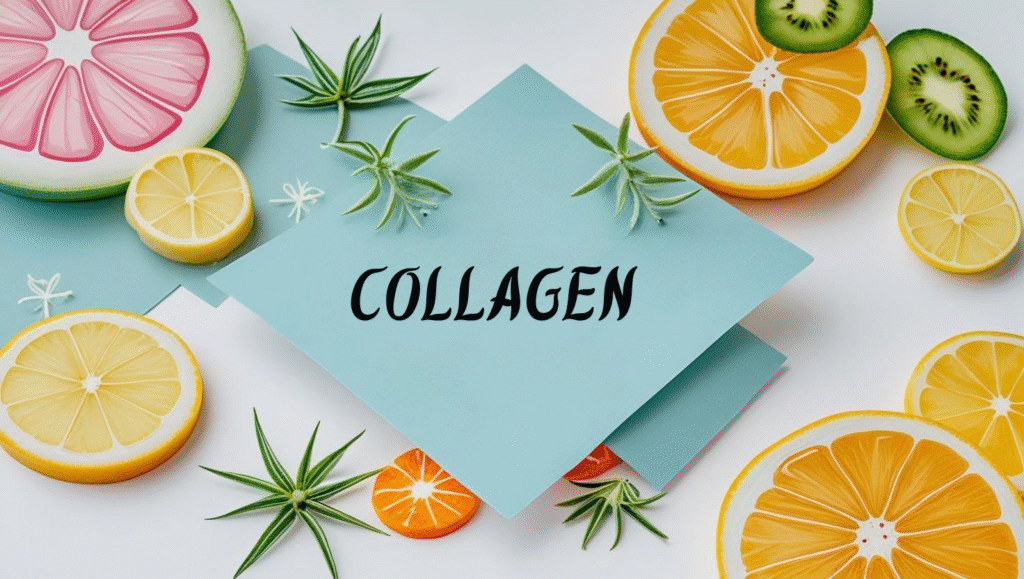When it comes to beauty, joint health, and aging gracefully, collagen has become a buzzword — and for good reason. But what exactly is collagen, and why does it matter?
What is collagen?
Collagen is the most abundant protein in the human body. Think of it as the scaffolding that holds your skin, bones, muscles, tendons, and ligaments together. It’s what gives your skin elasticity, your joints flexibility, and your connective tissues strength.
There are at least 28 types of collagen, but types I, II, and III are the most common:
- Type I: Found in skin, bones, and tendons — it’s the strongest.
- Type II: Present in cartilage — important for joint health.
- Type III: Supports skin, organs, and blood vessels — often found alongside Type I.
Why Do We Lose Collagen?
Unfortunately, as we age, our natural collagen production starts to decline — usually beginning in our mid-20s. Add in factors like:
- Excess sun exposure
- Smoking
- High sugar intake
- Stress
and you’ve got a recipe for fine lines, joint stiffness, and sagging skin.
How to Support Collagen Production
The good news? There are ways to support your body’s collagen levels through nutrition and lifestyle.
1. Eat collagen – boosting foods
Foods rich in vitamin C, proline, glycine, and zinc help support collagen synthesis. Great choices include:
- Bone broth
- Eggs (especially the whites)
- Citrus fruits
- Berries
- Leafy greens
- Fish and lean meats
- Pumpkin seeds
2. Supplement Smartly
Collagen supplements — often sold as hydrolyzed collagen peptides — have gained popularity. These are broken down for easier absorption and may help improve skin elasticity, hydration, and joint health.
Look for third-party tested products with Type I and III for skin and Type II for joints. Bonus if they also include vitamin C or hyaluronic acid.
3. Protect What You Have
- Use sunscreen daily
- Avoid smoking
- Manage stress
Get enough sleep
Does Collagen Really Work?
The science is promising but still evolving. Some studies suggest that collagen peptides can:
- Reduce wrinkles
- Increase skin moisture
- Improve joint pain and mobility
- Strengthen nails and hair
Results vary by person and usually take 4–12 weeks of consistent use. Collagen isn’t a miracle fix — but combined with a healthy lifestyle, it can be a helpful ally in your wellness toolkit.
Final Thoughts
Whether you’re sipping bone broth, blending a collagen smoothie, or just trying to age a little more gracefully, remember: collagen is more than a beauty trend — it’s a foundational protein that supports your entire body.
And like anything health-related, long-term consistency (not just short-term hype) is key.

